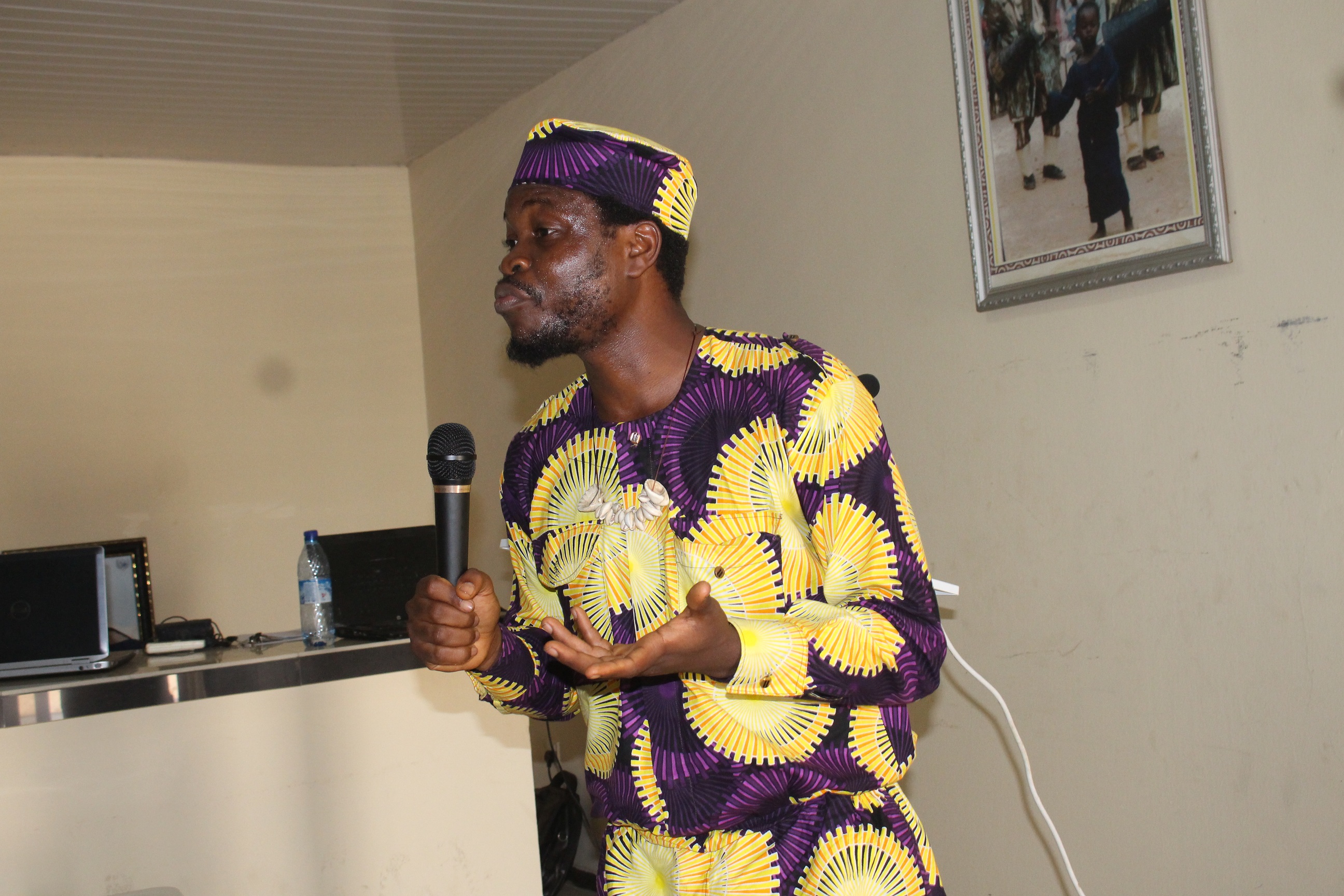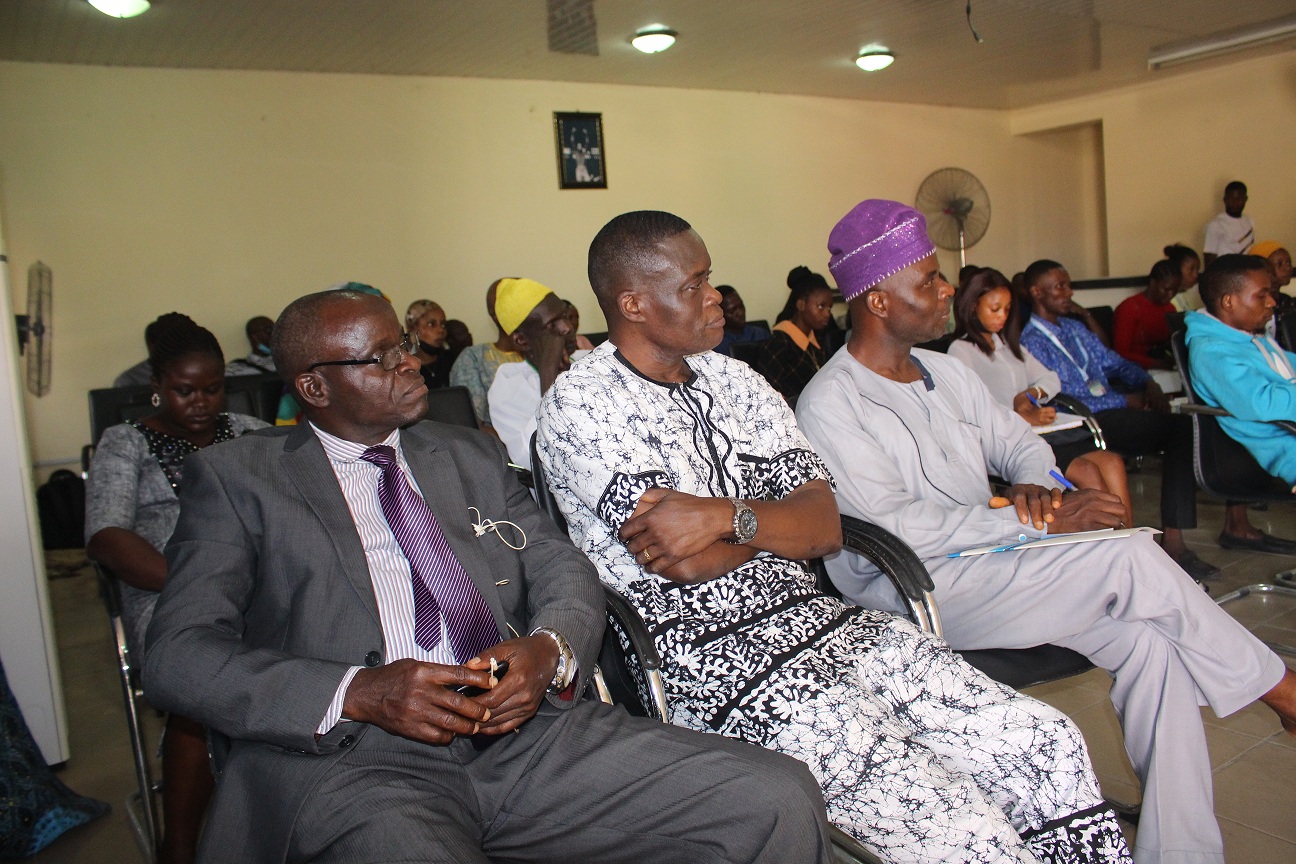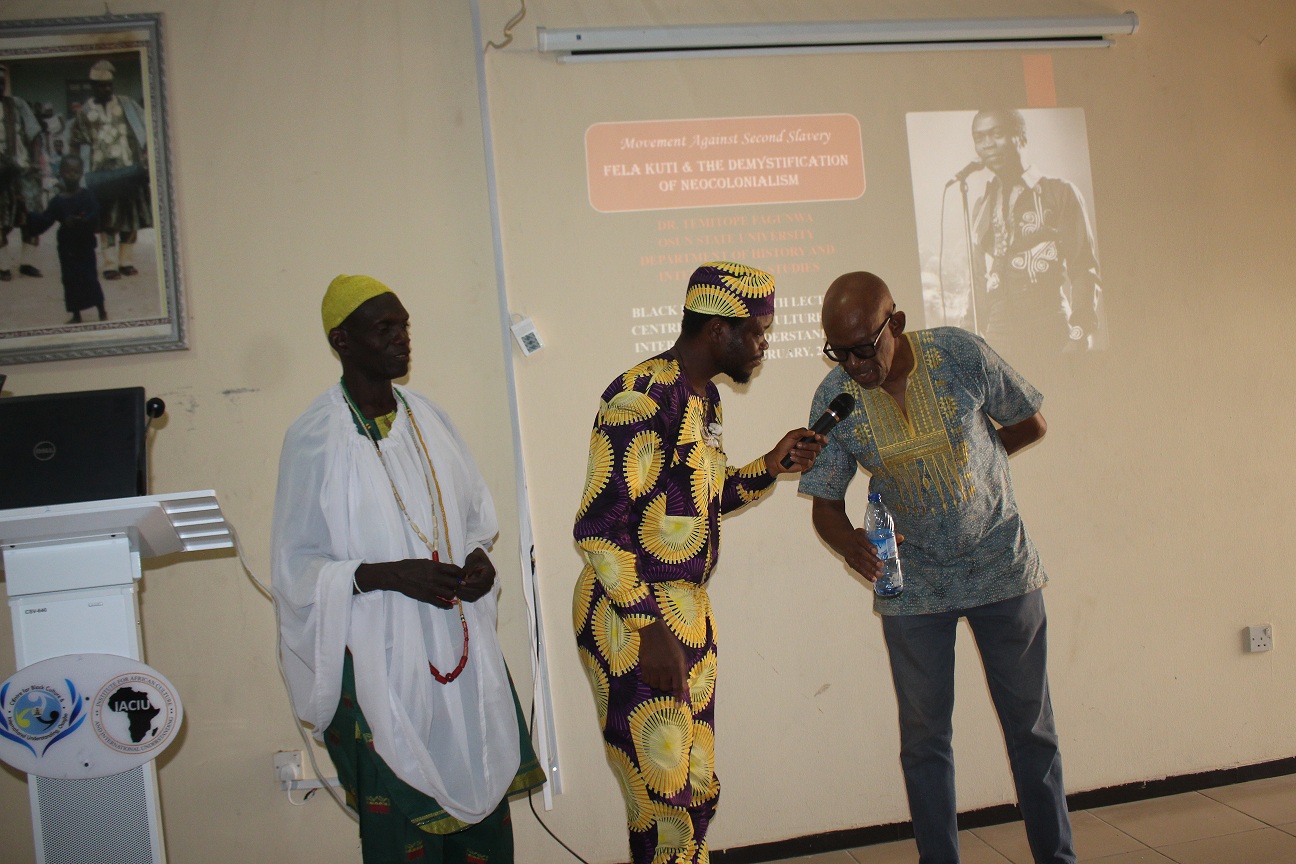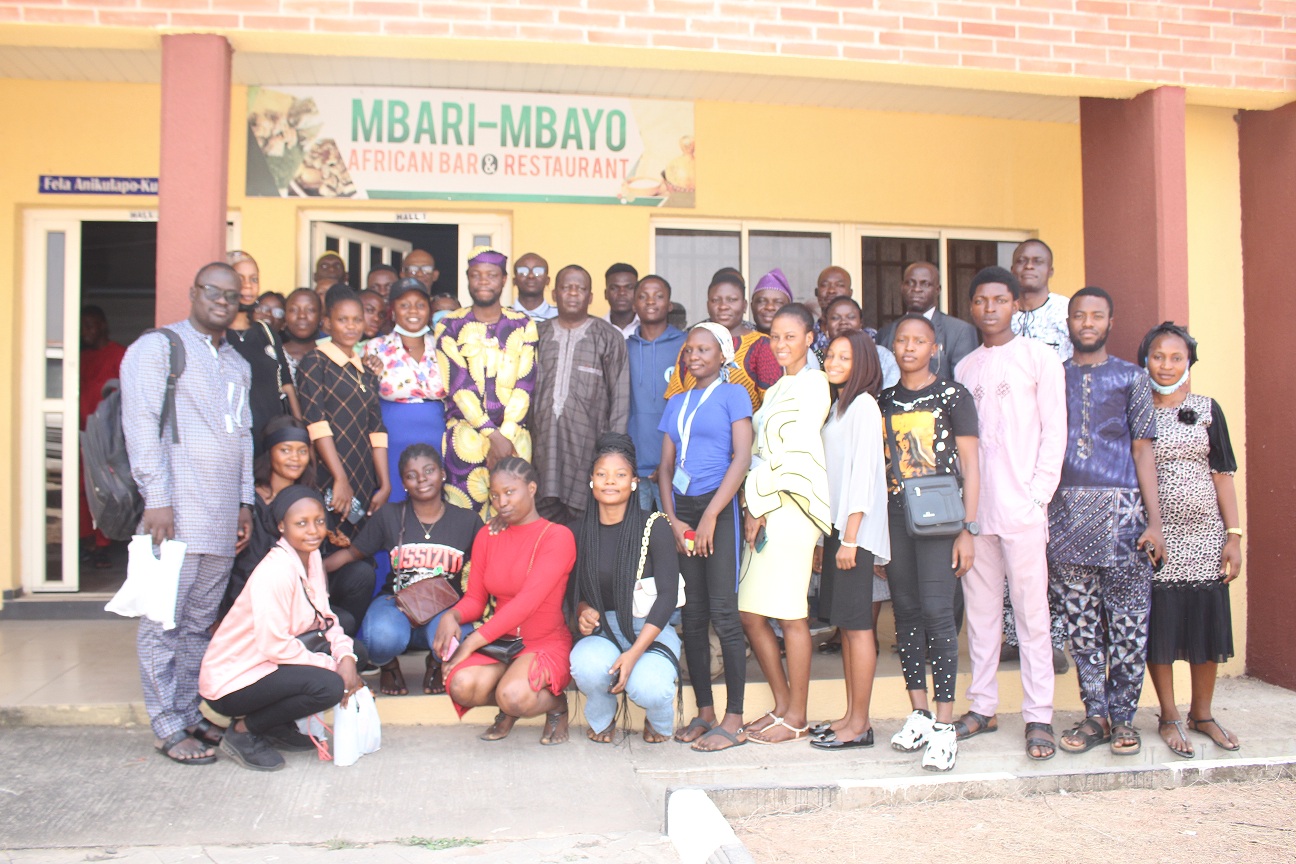CBCIU Marks Black History Month, 2022
In commemoration of the 2022 edition of the annual Black History Month,and as part of its Monthly Seminar Series, the Centre for Black Culture and International Understanding, Osogbo, hosted guests to a lecture titled 'Movement against Second Slavery: Fela Kuti and the Demystification of Neocolonialism.' The lecture delivered by Dr. Temitope Fagunwa of Department of History and International Studies,Osun State University, Osogbo, on Tuesday, 15 February, 2022,at the Fela Kuti Hall of the Centre, examined the role of the late Afrobeat music artist and Pan-Africanist, Fela Anikulapo-Kuti in the discourse on neocolonialism in Africa.

Dr. Fagunwa during the delivery of the lecture
Fela or Abami Eda as he was popularly called was not an unknown figure in the struggle against neocolonialism. His songs were very much instrumental to the global understanding of the different manifestations of the subject some of which include the prevalence of inequality, poverty, debt among others.Given Fela's highly critical songs that touched at the root cause of Africa's debilitating challenges, he became a soft target for successive Nigerian military regimes. He did not only make music for the sake of it, he used it to engage the masses and galvanise them into action. His Yabis sessions at the famous Kalakuta enclave was an avenue to give public lectures on the issues of the day, enslavement and slavery being a focal point.
Fagunwa observed in his lecture that African societies procured the development of underdevelopment as a result of the Trans-Atlantic Slave Trade which was later institutionalised and assured by the subsequent forces of colonialism. In his view, the failure of the new western-educated elites to disentangle themselves and the economy from that which they inherited from the colonial government aided in the rise of neocolonialism on the continent. "By implication, the “old-fashioned” exploitative systems and institutions of colonialism were not abolished in any way. It thus appears understandable why Western owned and controlled financial institutions are solely the architects of political and economic policies in postcolonial Africa." "On account of this reality, the unholy alliance between the African ruling class and the International Monetary Fund, World Bank, Paris Club, World Trade Organization, etc. are visible in the crises of unemployment, poverty, insecurity, inequality, debt trap, etc.," he argues.

cross section of the participants at the Seminar
It is against this background that Fela came to play an important role. By the time his music career took a shift, basing them on an anti-establishment posture, these songs became an avenue of expression of Pan-Africanism and an antidote to the crisis of neocolonialism. Fela's music, according to Fagunwa, targetted the international capitalist countries and their agents, institutions and structures as well as members of the African petit-bourgeois ruling class. In International Thief Thief released in 1979, Fela pointed out the 'nefarious' activities carried out by these groups and exposed the corrupt relationship that existed between them. He also waxed several anti-imperialists. In an unreleased album titled Movement against Second Slavery (MASS), Fela presented this song against the forces of neocolonialism.


Some of the participants at the Black History Month
Quick Links
Contact Us
Government Reserved Area
Abere, Osun State
| |


